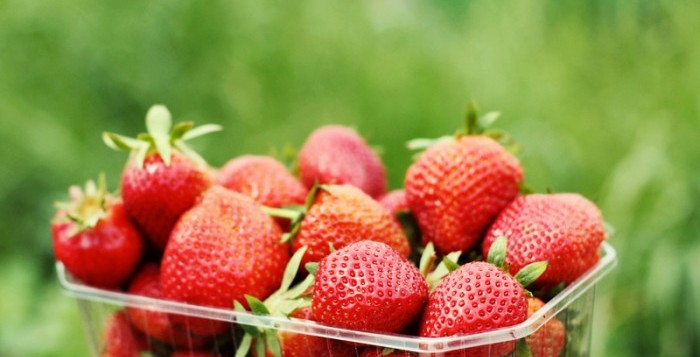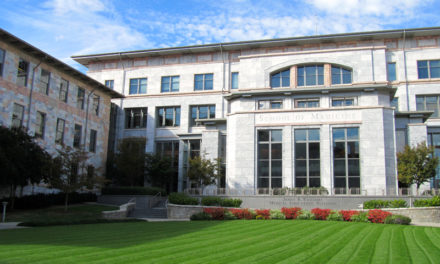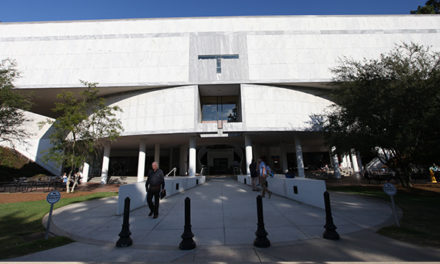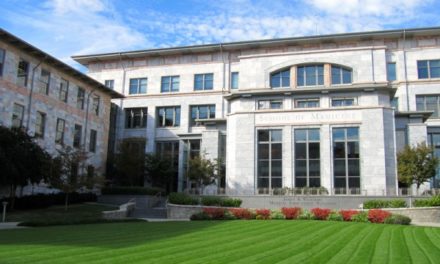
By Samantha Goodman
What was once a grassy field now holds sweet potatoes, peppers and more in an expansive farm and interactive classroom for Oxford College students called the Oxford Organic Farm, which officially opened on Oct. 18 just 700 feet from the Oxford campus.
Since this semester began, there have been at least 150 students in the small college who have worked on the farm either as part of class requirements, volunteer work or a work-study program.
The Emory community was invited to celebrate the opening of the more than 11-acre farm with local and organic foods, music by rock band Mercy Street, tours of the farm, fresh apple cider and a ceremonial tree planting, according to Assistant Professor of Sociology Deric Shannon.
“The project has exceeded expectations in every way,” Oxford College Dean Stephen Bowen said. “The farm is already producing hundreds of pounds of vegetables every week.”
Sodexo buys much of the produce to serve to students eating at both the Oxford and Atlanta campuses.
The farm, located at 406 Emory Street, was donated to Oxford by Trulock Dickson (’72OX, ’74C) in 2011. It originally belonged to late Oxford Professor of Mathematics and Director of Student Activities Marshall Elizer and his wife Fran since 1948, according to Shannon.
Bowen said in an interview with the Wheel the idea for the farm has been in the works for several years. According to a Jan. 17 University press release, Bowen said that “the enabling event was the gift of land.”
The next piece in the puzzle was finding the right farmer to manage the land, use sustainable farming to support the community and teach students in the process, according to the Jan. 17 University press release.
According to the press release, they landed on Daniel Parson, who comes with 15 years of experience in organic farming. In 2009, he was presented with the Georgia Organics Land Steward of the Year Award and named to Mother Nature Network’s “40 Farmers Under 40” list.
Parson initially focused on readying the land for students this fall. Since then, the farm now includes a barn that houses a walk-in cooler and space where the produce can be prepared, packed and distributed.
The farm operates a weekly paid produce plan that allows subscribers to pick up their Community Supported Agriculture (CSA) baskets that are pre-filled with that week’s produce.
Parson also has a booth on Tuesdays at the Emory Farmer’s Market that sells vegetables grown at the Oxford garden.
Additionally, Oxford professors are building the farm into their class curriculum. In one class, “The Sociology of Food,” the farm serves as the classroom.
Taught by Shannon, the class is an “experimental way to learn about good food and to become good learners,” he said. “[The class] looks at how food is central to inequality and how it plays into building our identities.”
Classes in Economics, Environmental Science, Philosophy, Sociology and Spanish have also included work on the farm as part of the curricula.
“It is nice to see the community getting so involved,” Parson said.
Shannon added that members from the surrounding Fulton County area have come to enjoy the garden as well.
“It’s amazing to think of all the people who have spent their time turning this long-term vision into a reality,” Parson said. “It was just a field when I got here in January, and now it’s a fixture on campus.”
This is only the beginning according to Bowen, who noted that the irrigation system was just installed last week.
Parson, Bowen and Shannon all noted that everyone is invited to check out the farm when they have a chance.
“In a lot of ways, the best hasn’t even come yet,” Parson said.
– By Samantha Goodman, Contributing Writer
The Emory Wheel was founded in 1919 and is currently the only independent, student-run newspaper of Emory University. The Wheel publishes weekly on Wednesdays during the academic year, except during University holidays and scheduled publication intermissions.
The Wheel is financially and editorially independent from the University. All of its content is generated by the Wheel’s more than 100 student staff members and contributing writers, and its printing costs are covered by profits from self-generated advertising sales.






